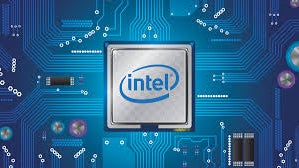Chip shortage is still a thing says Intel CEO Gelsinger

Just because we don't constantly hear about it as much anymore doesn't mean that the global chip shortage has ended; when it comes to chips, the world isn't all of a sudden "in the chips," according to Intel CEO Pat Gelsinger who spoke Friday on CNBC's "TechCheck." The executive says that important tools used in the chip manufacturing process are not readily available keeping production capacities in check.
Intel CEO Gelsinger sees chip shortage lasting to 2024
With foundries unable to expand production capacity for their fabs, Gelsinger sees the chip shortage lasting longer than originally thought. "That’s part of the reason that we believe the overall semiconductor shortage will now drift into 2024, from our earlier estimates in 2023, just because the shortages have now hit equipment and some of those factory ramps will be more challenged," the Intel CEO said.


Intel, which has promised to regain "process performance leadership" by the end of 2024, has created a road map that includes taking delivery of ASML's next-generation extreme ultraviolet lithography (EUV) machine. The $150 million machine uses highly polished mirrors to help focus ultraviolet light allowing it to etch circuitry patterns onto a wafer.
With billions of transistors deployed on chipsets these days, lithography machines need to be able to create patterns that are fractions of the width of a human hair to help foundries manufacture cutting-edge chips. Intel will be the first foundry to use the new machines that raise their numerical aperture from .33NA to .55NA. This means that the machine can collect more light to help it create the circuitry patterns on the wafers that are used to build faster and more energy-efficient integrated circuits.
Returning to process leadership means that Intel has to continue spending to build new fabs in the U.S. and Europe. The executive says, "We’ve really invested in those equipment relationships, but that will be tempering the build-out of capacity for us and everybody else, but we believe we’re positioned better than the rest of the industry."
Before speaking on CNBC, Gelsinger previously said that a supply-demand balance in the chip industry would take place in 2023. Intel did report first-quarter revenue and earnings last week that topped expectations on Wall Street although its estimates for the second quarter came in below analyst's forecasts. Over the last week, Intel's shares declined 8.6% from $93 to $85.
The top two contract foundries in the world that take chip designs created by other companies and turn them into the final components are TSMC and Samsung. The former is known for building the chips designed by Apple including its A-Series and M-Series chips. Unlike TSMC and Samsung, Intel's foundries usually produce components that Intel itself had designed.
Intel to enter the business of building chips for third party chip designers
With two new fabs being built in Arizona, Intel is taking the business model perfected by TSMC and is bringing it to the U.S. But that doesn't mean that TSMC won't be a competitor. The Taiwan-based company is building its own plant in Arizona that will turn out 5nm chips by 2024.
Tech firms are expected to embrace the possibility of having Intel produce chips based on their designs without fear that a geopolitical event will force TSMC to shut its factories in Taiwan and create a massive bottleneck that would make the current chip shortage feel like a walk in the park.
Creating a valid supply chain for chips in the U.S. and making the country self-sufficient is a goal that the U.S. has been trying to achieve. China too has a goal to become self-sufficient when it comes to building chips. After the U.S. used its export rules to block Huawei from receiving shipments of cutting-edge chipsets, this became a major goal for the country.
In 2020, the U.S. Commerce Department put in place a rule that blocks foundries that use American technology to build advanced chips from shipping such chips to Huawei even if the chips were designed by the company itself.













Things that are NOT allowed: